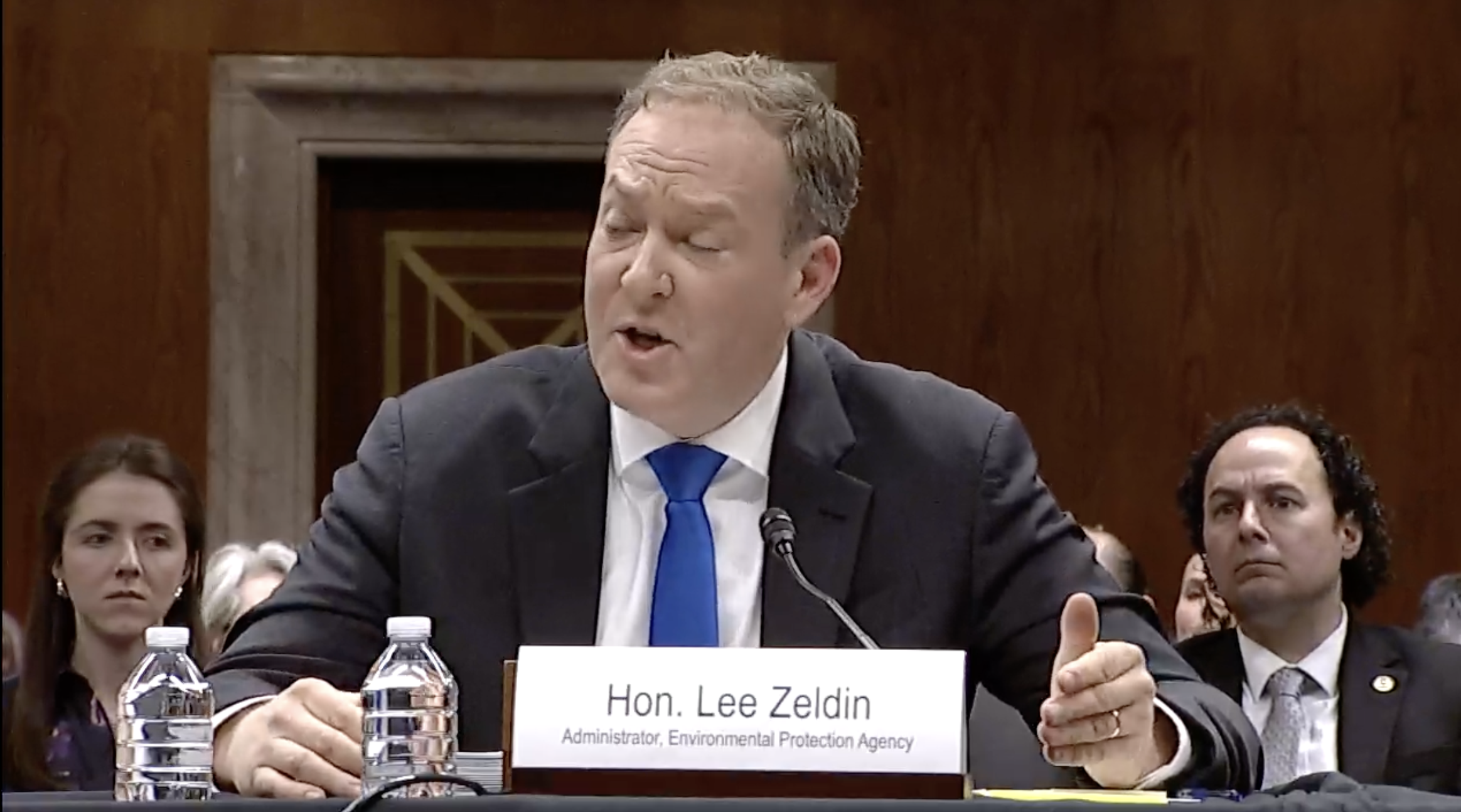 In a Senate hearing on Wednesday, Environmental Protection Agency Administrator Lee Zeldin laid out the radical argument that the Trump administration is not bound by laws passed under previous Congresses.
He argued vociferously with Sen. Jeff Merkley (D-Ore.) that his agency’s defiance of statutory obligations and subsequent court rulings were acceptable, saying that the Trump administration is bound only by the rulings of the U.S. Supreme Court.
In a Senate hearing on Wednesday, Environmental Protection Agency Administrator Lee Zeldin laid out the radical argument that the Trump administration is not bound by laws passed under previous Congresses.
He argued vociferously with Sen. Jeff Merkley (D-Ore.) that his agency’s defiance of statutory obligations and subsequent court rulings were acceptable, saying that the Trump administration is bound only by the rulings of the U.S. Supreme Court.
And then in a telling exchange with Sen. Mike Rounds (R-S.D.) about the Clean Water and Drinking Water Revolving Funds, which the Trump administration has proposed to dismantle, he promised only to follow specific directives in laws passed by the current Congress.
Zeldin’s specious and wildly unconstitutional argument is that the presidential election acted as a reset for federal statutes.
Congress appropriates funding, and then the agency distributes that funding as it's required to under the law. That doesn't mean from one administration to the next, that the Trump administration is going to come in agreeing with the policy priorities of the prior administration that just left office. There might be a disagreement of opinion between administrations. And we come in towards the beginning of a fiscal year. The way that funding will go out the course of a fiscal year might be applying the new administration's priorities, as the American public voted for last November.
Transcript:
ROUNDS: There's a lot of us here that really do think there's an importance to the clean water and drinking water state revolving loan funds. There's a $2.47 billion decrease in the skinny budget proposal that's been laid out.Let me just ask this question on it. Congress appropriates, and we direct, we authorize, and so forth. My suspicion is that Congress will seriously consider reappropriating those funds again. Would it be fair to say, although there have been some suggestions that you’re not following the law and so forth, that if we appropriate it, and direct that it be put back into those revolving loan funds, that you’ll follow the law and you’ll see that it’s done.
ZELDIN: Of course, yes, senator.
ROUNDS: I appreciate that because the misunderstanding is that somehow you’re not going to follow the law on this. When Congress puts it in and we say, “No, we want it back in, and it should go back out to the states,” at that stage of the game, we can count on you working with us to get it done appropriately.
ZELDIN: Senator, I appreciate you raising this point and raising this example. Congress appropriates funding, and then the agency distributes that funding as it’s required to under the law. That doesn’t mean from one administration to the next, that the Trump administration is going to come in agreeing with the policy priorities of the prior administration that just left office. There might be a disagreement of opinion between administrations. And we come in towards the beginning of a fiscal year. The way that funding will go out the course of a fiscal year might be applying the new administration’s priorities, as the American public voted for last November.
ROUNDS: Based upon where there is broad latitude provided to the executive branch in the expenditure of those authorities. But where the Congress is more specific in their appropriations, it makes it cleaner and more directed in terms of your ability to decide up front whether it is truly the will of Congress to do it in one particular program such as these revolving loan funds.
ZELDIN: Senator, I love your question. This applies to so much from appropriation to policy. If Congress wants an agency to take a specific action, Congress can give an obligation to an agency. I’m here, as I was in my confirmation process, and I will continue to come before Congress, committing to fulfilling all statutory obligations. And if there’s some new statutory obligation because of some law that’s passed say a month from now, our agency will fulfull those statutory obligations. It’s a really important point.